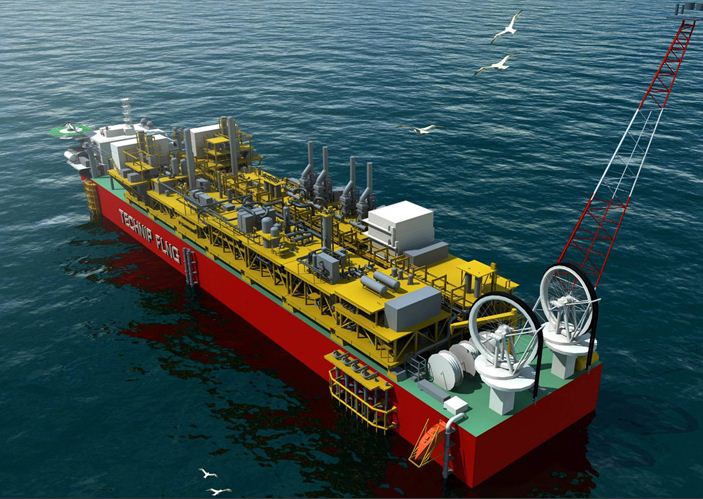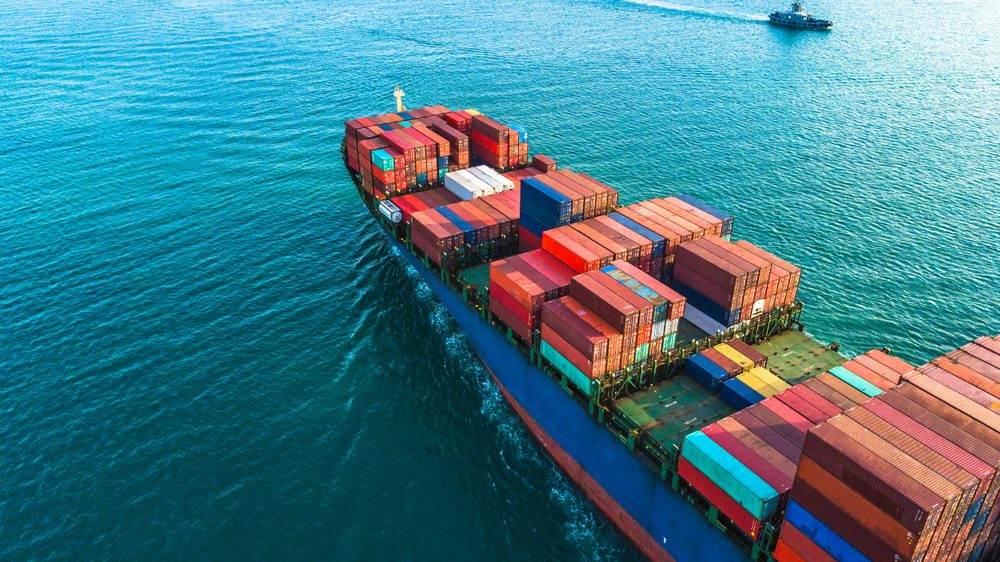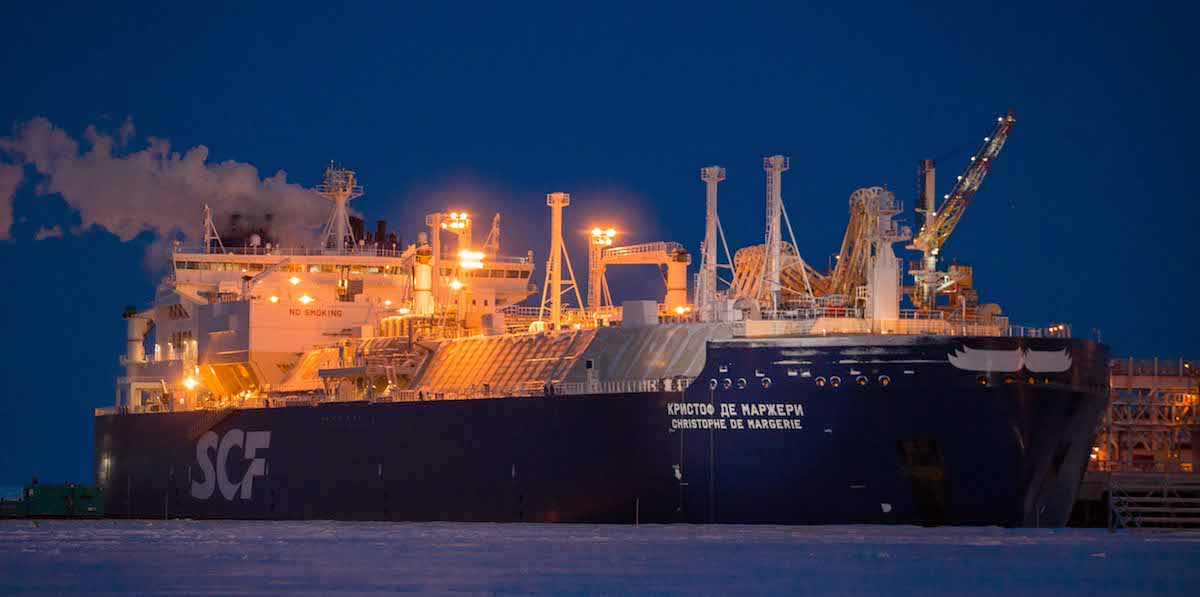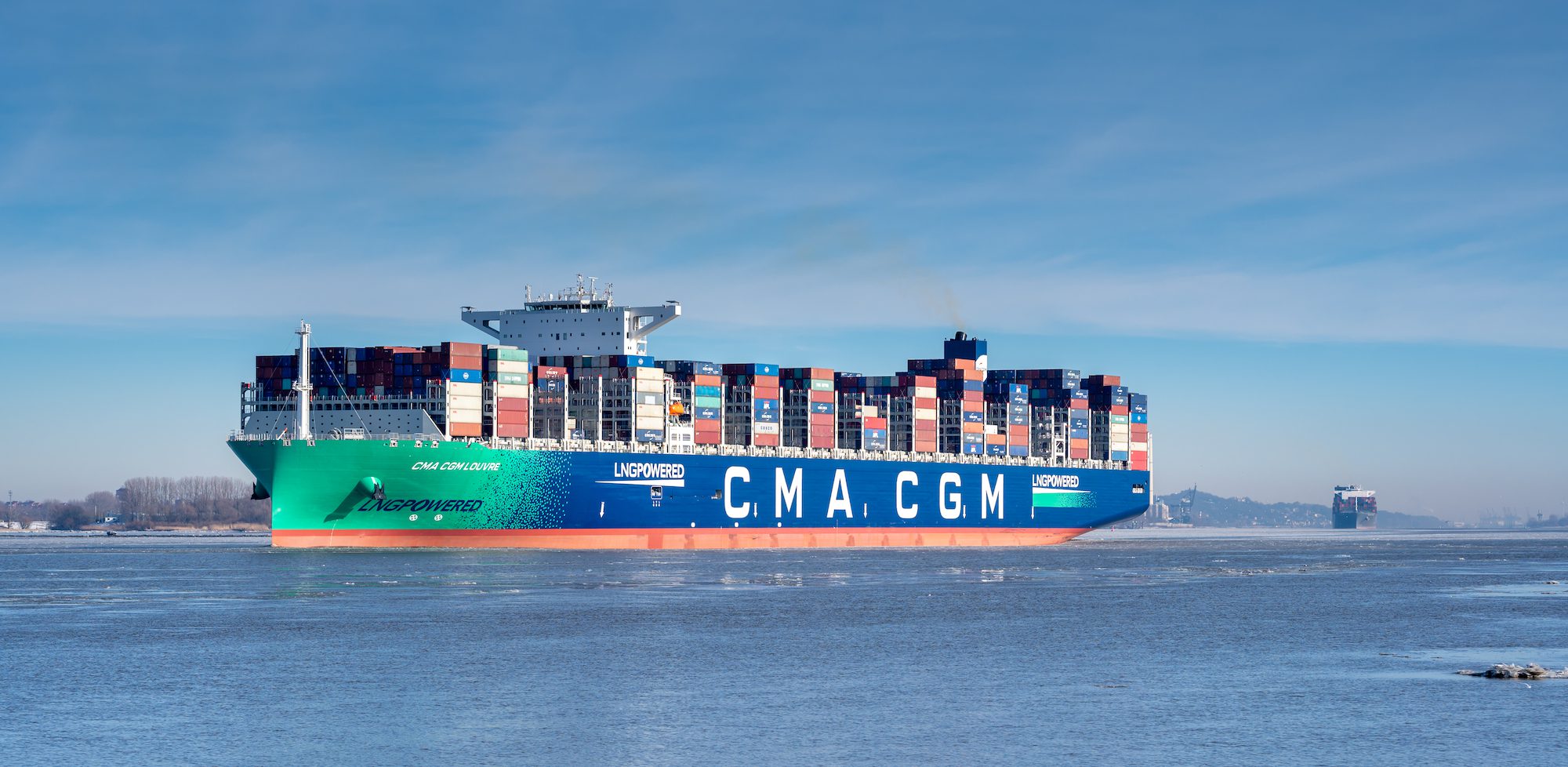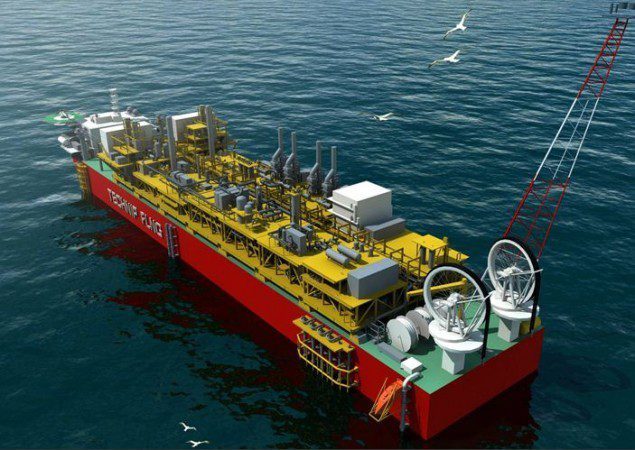
OSLO — DNV announced today that they have been awarded the contract to class the Petronas LNG FPSO (FLNG). The unit will be built by DSME in Korea and is destined for the Kanowit field offshore Sarawak, Malaysia.
It is expected to be the world’s first floating liquefaction unit in operation when completed in 2015.
Tied into an offshore gas field, the FLNG unit will negate the need for a costly or technically problematic offshore pipeline to transport natural gas back to a land-based liquefaction plant. This floating LNG facility will gather the gas via subsea risers, liquefy, store, and then eventually offload it to an LNG carrier.
The Petronas FLNG will be 300m long and 60m wide and will be moored 180km from shore. It is designed to produce 1.2 million tonnes a year (mtpa) of LNG, boosting Malaysia’s total LNG production capacity from 25.7 mpta to 26.9 mpta.
The scope of the DNV contract includes the floating structure, mooring arrangement and natural gas liquefaction technology. Among the challenges of the project are:
• cryogenic storage tanks that are tolerant to sloshing
• topsides that include gas pre-treatment and liquefaction processing equipment and
• ship-to-ship offloading equipment suitable for LNG transfer at sea.
“The ability to process and offload LNG offshore will increase the viability of significant gas reserves in Malaysia’s remote and stranded fields and beyond that, we foresee a number of these very high investment projects being built throughout the world as a means of developing gas fields and transporting the gas economically to market,” says Conn Fagan, Vice President of floating gas project business development at DNV.
“There is currently a high demand for LNG,” says Mr Fagan. It can be a cost effective solution for supplying the energy needs of rapidly growing cities such as those in Bangladesh, China, India, Indonesia and Vietnam, as well as providing flexibility of supply for consumers currently reliant on pipeline gas. This demand, coupled with the presence of large offshore gas reserves, some in remote locations, has made the floating LNG production unit an interesting technical and economic option.
“DNV is at the forefront of FLNG technology and we are building competence around the world to support Petronas in this project and other clients who are entering the field,” says Mr Fagan. “This is cutting edge technology for the oil and gas industry and it will have a dramatic impact on the nature of upstream business around the world.”
Editorial Standards · Corrections · About gCaptain

 Join The Club
Join The Club



